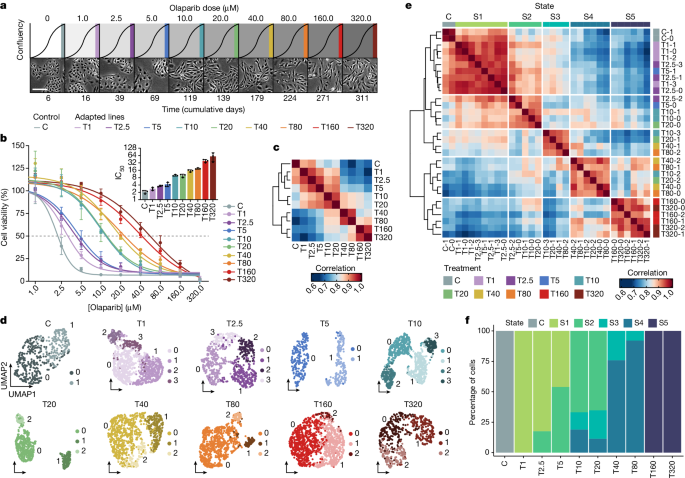Cellular Adaptation to Cancer Therapy Along a Resistance Continuum
Cellular adaptation to cancer therapy is a complex process that involves the evolution of cancer cells in response to treatment. As cancer cells are exposed to various types of therapies, they can develop resistance mechanisms that allow them to survive and continue to grow. This phenomenon is known as therapy resistance, and it poses a significant challenge in cancer treatment.
Understanding Cellular Adaptation
Cellular adaptation to cancer therapy occurs when cancer cells undergo genetic and epigenetic changes in response to treatment. These changes can alter the cellular pathways involved in cell proliferation, survival, and metabolism, making the cancer cells less susceptible to therapy. As a result, the cancer cells can evade the effects of the treatment and continue to proliferate and spread.
Mechanisms of Resistance
There are several mechanisms by which cancer cells can develop resistance to therapy. These include mutations in genes that regulate cell growth and survival, activation of alternative signaling pathways, and changes in the tumor microenvironment. In some cases, cancer cells can also develop resistance by increasing the expression of drug efflux pumps that expel the drugs from the cells.
Drug Tolerance vs. Drug Resistance
It is important to distinguish between drug tolerance and drug resistance. Drug tolerance refers to the temporary ability of cancer cells to survive exposure to a therapeutic agent, while drug resistance is a more permanent state in which the cancer cells are no longer sensitive to the treatment. Drug tolerance can eventually lead to the development of drug resistance if the cancer cells are exposed to the same treatment for an extended period of time.
Managing Therapy Resistance
Managing therapy resistance in cancer treatment is a major challenge for oncologists. One approach to overcoming resistance is to combine different types of therapies that target multiple pathways involved in cancer cell growth and survival. This can help prevent the development of resistance by inhibiting multiple cellular pathways simultaneously.
Personalized Medicine
Another approach to managing therapy resistance is personalized medicine, which involves tailoring treatment to the specific genetic and molecular characteristics of the individual patient’s cancer. By identifying the specific genetic mutations and signaling pathways driving the cancer growth, oncologists can choose the most effective treatment options for each patient, thereby minimizing the risk of developing resistance.
New Therapeutic Strategies
Researchers are also exploring new therapeutic strategies to overcome therapy resistance in cancer treatment. These include developing targeted therapies that specifically inhibit the pathways involved in resistance, as well as immunotherapies that harness the immune system to attack cancer cells. By combining these different approaches, researchers hope to improve the outcomes for patients with therapy-resistant cancers.
Conclusion
Cellular adaptation to cancer therapy along a resistance continuum poses a significant challenge in cancer treatment. As cancer cells evolve and develop resistance mechanisms, it becomes increasingly difficult to effectively target and eliminate the cancer cells. However, by understanding the mechanisms of resistance and developing new therapeutic strategies, researchers and oncologists can continue to improve outcomes for patients with therapy-resistant cancers.
FAQs
Q: How common is therapy resistance in cancer treatment?
A: Therapy resistance is a common phenomenon in cancer treatment, and it can develop in response to various types of therapies, including chemotherapy, targeted therapy, and immunotherapy.
Q: Can therapy resistance be overcome?
A: While therapy resistance presents a significant challenge in cancer treatment, researchers and oncologists are constantly developing new strategies to overcome resistance and improve outcomes for patients with therapy-resistant cancers.
Q: How can personalized medicine help in managing therapy resistance?
A: Personalized medicine involves tailoring treatment to the specific genetic and molecular characteristics of the individual patient’s cancer, which can help identify the most effective treatment options and minimize the risk of developing resistance.




